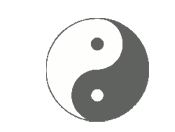Essentials of Systems Thinking in the Workplace
Systems thinking originated long ago, across diverse cultures. In Western culture, the ancient Greeks understood it yet, through time, systems thinking became fragmented in Euro-western societies. Indigenous and eastern cultures, however, retained a holistic understanding in regard to how human interactions are interrelated with, and impact upon, all spheres of life - planetary and cosmological, as well as human.
Today, Western culture has much to learn or, indeed, relearn about how to make wise choices, through complementing new life-affirming insights with perennial wisdom that comprehends what sustains our planetary life support system. Systems thinking in the workplace is one step in the right direction, as theorized by scientist and maverick thinker/educator Peter M. Senge. In his classic book The Fifth Discipline, he explains the need for systems thinking in corporate industries which, he advocates, need to see themselves as `learning organizations.' Systems thinking is the `fifth discipline' added to other key disciplines that Senge identifies as: personal mastery; mental models; building shared visions; and team learning.
Increasingly, corporations are using the insights and skills of consultants, coaches and mentors to provide guidance in processes of transformation, on many levels, from the attitudes and behaviours of individuals to company infrastructures and interactions with all stakeholders, who include customers and shareholders. The concepts and practices of psychosynthesis and transformative learning can be very helpful in such a paradigm shift at this historic moment.
Shifting consciousness is imperative, most particularly by the West. For the Western worldview continues to be imposed globally, to the extent that the wisdom of Indigenous and Eastern cultures is being eroded, increasingly subjected to the imposition of a fractured Western cultural consciousness that needs urgent repair and elevation. We collectively need to use the lens of media literacy, to deconstruct and reverse the descent of materialism. The reason is, materialism is a reductionist mode of existence that views everything alive on this planet only in its monetary value, namely, as consumer, commodity or marketplace.
Companies, therefore, need to not only implement systems thinking in the workplace. Yet, also, companies need to move beyond practices of so-called `corporate responsibility' that merely give the appearance of being environmentally friendly, to look good more for public relations than to show visible evidence of genuine long term benefits to the human family and life-sustaining environments. The latest trends include `spirituality in the workplace' and `conscious business.' Dr. Gianni Zappala, at the Centre for Social Impact in Australia, writes and speaks brilliantly on these worthy, yet flawed, pursuits that do have untapped potential.
Meanwhile, no one more eloquently speaks to the need for revitalization of the soul in our places of work than poet David Whyte, acclaimed for the workshops on individual and organizational creativity that he offers to corporations. Whyte writes: "to feel that what we do is right for ourselves and good for the world at the same exact time - is one of the great triumphs of human existence."
To sum up, we are more than the labels of consumers, investors, policy makers and workers, and every human being can make a difference. Maverick environmentalist and social activist Paul Hawkens demonstrates how ordinary people worldwide already have awakened to the human possibility to create environmental and social change, in his important book, Blessed Unrest.



